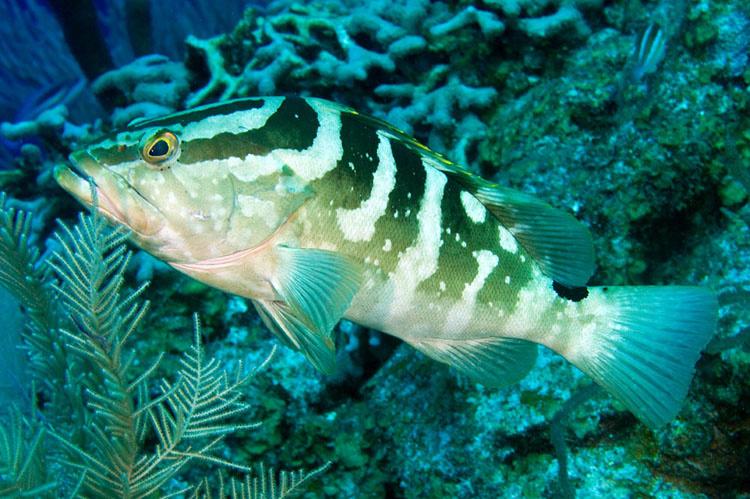Researchers eavesdrop on groupers' mating calls
In a new study, deep neural networks help researchers identify four grouper species more accurately through their mating calls.
During their spawning aggregation, some groupers produce courtship-related sounds that are species specific. In a new study, researchers used deep neural networks (algorithms modeled after the human brain) to classify four grouper species by their sounds or "grouper calls."
The new approach achieved a vocalisation classification accuracy of about 90 percent for four grouper species: red hind, Nassau grouper, yellowfin, and black grouper. This is a significant improvement over previous methods of automatically classifying grouper calls.
"The sounds groupers make vary in the 10 to 500 Hertz frequency range and have distinctive characteristics that can be seen in a spectrogram, which is a visual representation of the spectrum of frequencies in a sound or other signal," said lead author Hanqi Zhang, Ph.D., associate chair, and a professor in the university's Department of Computer and Electrical Engineering and Computer Science.
The study, conducted by researchers from Florida Atlantic University's College of Engineering and Computer Science and Harbor Branch Oceanographic Institute and collaborators, was published in the Journal of the Acoustical Society of America.
The concentrated nature and short duration of the spawning season—a couple of months each year—means that they are particularly vulnerable to overfishing. Hence, the new approach is essential when studying the spawning aggregations of the grouper species, 12 percent of which are classified as "at risk of extinction."
It is hoped that the new technologies will aid in helping the species flourish, by informing fisheries managers where protective measures are necessary.
Stella Batalama, Ph.D., dean of FAU's College of Engineering and Computer Science, says that "... studying the spawning aggregations of groupers and other species is vital to conservation efforts aimed at reversing worldwide depletion of endangered fishes and sustaining marine biodiversity. The technology developed by our researchers is a critical tool to help accomplish this important endeavor."


